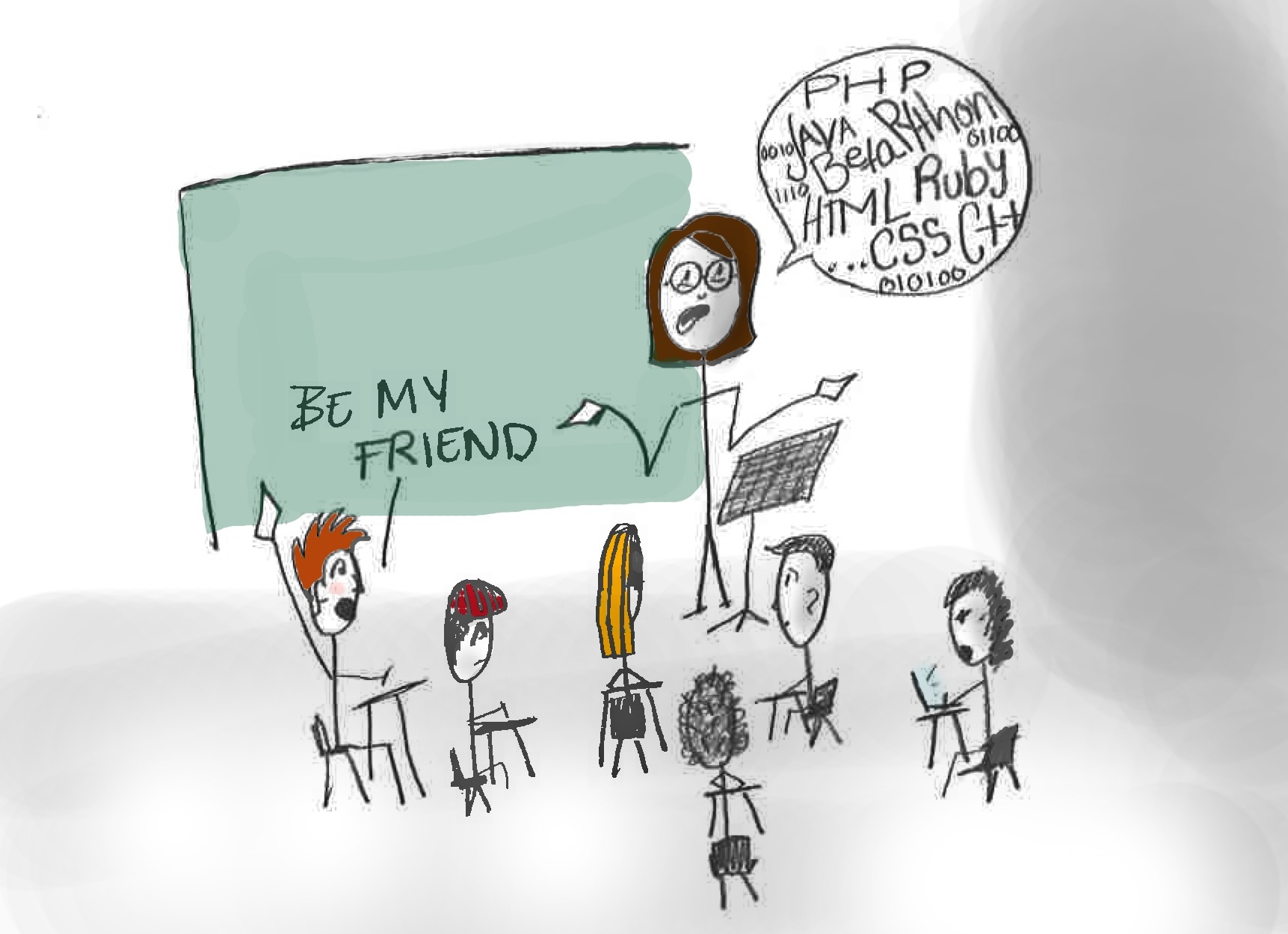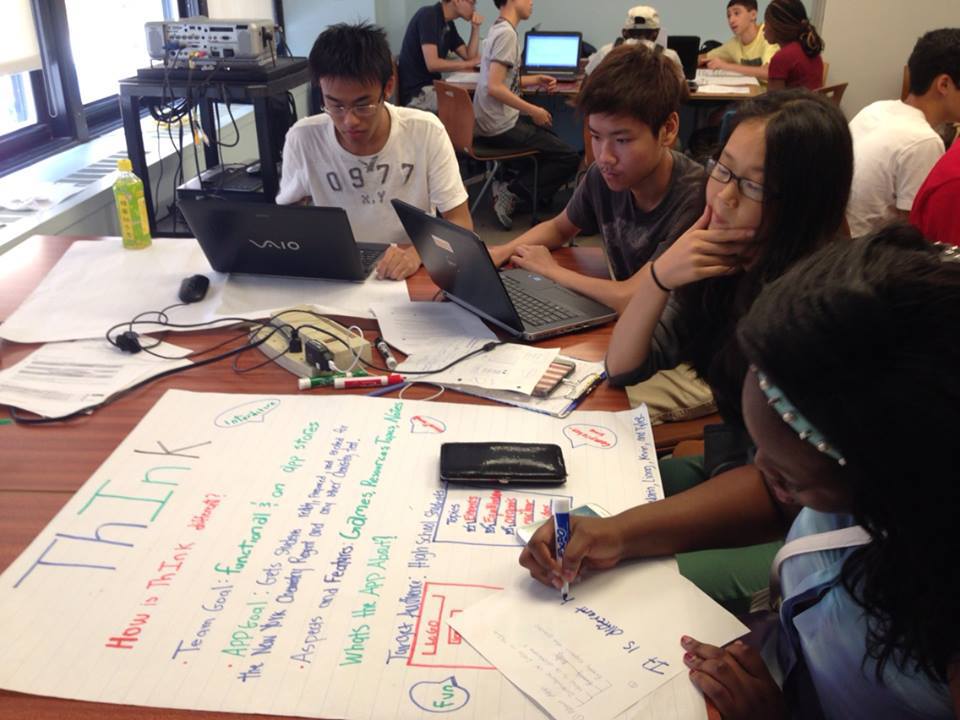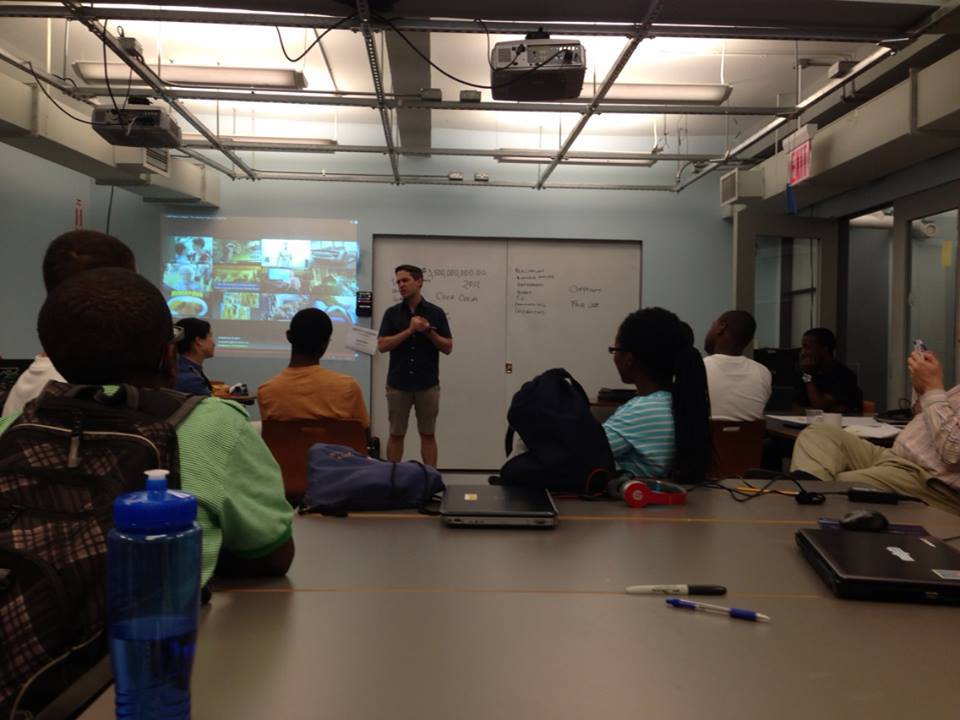You’ve got two weeks before your college career begins. Here come your golden years, your taste of reality, your time to make something of yourself, the time to find your most influential friends and mentors. No pressure.

In all honesty, people put SO much pressure on making sure that they enjoy college as much as possible that they forget to enjoy the joy of it. Seidenberg’s advice: take it easy. This is just the next four years of the rest of your life. They’re going to be great by default, mostly because you’ll be doing brand new things with brand new people in a brand new place. However, here’s something people often forget about college: it’s a place for education. Ultimately, that’s the goal here. We’re all here to learn, whether it’s in class or through experience. A lot of freshmen get overwhelmed with this brand new life they’re given.
We Seidenbergers have accumulated a list of tips for freshmen, especially those coming to NYC, and even more especially, those who will be at Pace, and even more especially, those who will be in Seidenberg. Just follow these guidelines to keep your head on during the initial rush and don’t over think the college experience; you will be fine.
1. T I M E M A N A G E M E N T
Time moves differently in college. By differently, I mean it’s faster and much more erratic. Your days will be random and less routine than they were in high school; classes aren’t blocked together neatly and your parents won’t be around to take your blanket or turn on the light when you’ve pressed your alarm’s snooze button for the 6th time. Don’t count on a room mate to wake you up either–that strategy has proven itself to be a massive failure.
To avoid snoozing through your AM classes, invest in a good alarm clock (a phone works) with a tone you won’t sleep through. Even better, if you’re prone to snoozing, set your alarm to the most obnoxious noise available. Your room mate or someone on your hall is bound to come banging on your door eventually to wake you up.
Since classes in college are generally once or twice a week, deadlines are sneaky little things. You won’t have your teachers reminding you every day in class like they may have in high school. If your professor remembers to remind you in class, you still may only get one or two reminders before and exam or a large assignment is due. Keep a calendar or agenda or planner and make sure it’s organized. Getting into the habit of using it and checking it may take a while, but you’ll be thankful when you realize you have a 5 page paper due and an exam the next time you see your professor. Procrastination is going to happen no matter what (unless you’re magical), so having an agenda or a calendar will ease some of the pain. You’ll at least be able to plan your social events around your busy study nights if you can’t pace yourself throughout the week.

2. M A K E C O N N E C T I O N S
Besides the obvious–to go into college with an open mind–we Seidenbergers strongly advise you to connect with a professor (or any faculty member, really) within your first semester. It would be best to pick someone from your department, but sometimes you may hit it off with a professor from one of your electives and that relationship can be just as valuable. However, we add to that advice: if you can help it, choose a tenured member of the faculty. Adjunct professors can be great, but their loyalties can be spread out around the city and their time on campus can be limited–ergo limiting. If you choose someone who is well-knitted into the Pace community, your connection can expand into a network.
It can be a bit daunting to approach a professor, especially if you don’t want to feel like a suck-up but let us assure you, professors appreciate it. They are there to aid your education and sometimes, in the long run, a healthy relationship with a professor will help him or her out equally as much as it’ll help you. To make a connection, it can be as simple as sending your professor an email regarding something he or she has worked on, or hanging around after class to expand on a discussion topic from class. Getting to know a professor will help you understand how he or she responds to your work (this is extremely helpful if he or she is reading and grading your essays) and vise versa. If you’re on friendly terms with a professor, you might even be able to reason with him or her out of a poor grade. Good luck trying to do that if you’ve never spoken to them outside of the classroom setting.
Another important thing about getting close with a professor (or two, if you can) within the first semester: recommendations! It is not unlikely that you will start applying to internships and jobs for spring and summer after your first months in college. Most internships require recommendations, so having a go-to professor makes that ordeal a lot less stressful. Plus, the better a professor knows you, the less generic his or her recommendation will be.

More survival strategies coming soon; we’ll give you the deets on how to make friends with upperclassmen and how to get the most out of your Seidenberg experience. Keep checking in!











